I've a few custom events like this:
Bundle bundle = new Bundle();
bundle.putString("my_key", "some_value");
bundle.putString("my_key2", "some_value_2");
bundle.putString("my_key3", "some_value_3");
mFirebaseAnalytics.logEvent("my_event", bundle);
In the Firebase console I can see the my_event in Events tab but I can't find the my_key and some_value. I came across some similar questions like this where is stated that data will be available as soon as your audience reach 10 or more. Well I've reached that audience.
The documentation says:
Custom parameters: Custom parameters are not represented directly in your Analytics reports, but they can be used as filters in audience definitions that can be applied to every report. Custom parameters are also included in data exported to BigQuery if your app is linked to a BigQuery project.
But in the Audience tab I have:

If Filter not applicable how can I consult my custom event? I don't want to use BigQuery, all I want is to create custom events and consult them like I would with Google Analytics.
Thanks.